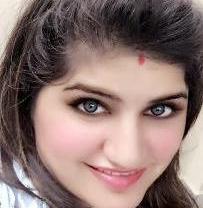Tour Itinerary
Destination Covering :Bikaner – Nagaur - Jaisalmer - Jaipur
Rajasthan, a barren desert land, becomes resplendent with the colors of joyous celebration and gay abandon of its fairs and festivals. There is a fair for every religious occasion, every change of season and every harvest, all invariably a reflection of the genius of their arts and crafts and their ascetic refinement. Rajasthan has all the usual Hindu and Muslim festivals, some celebrated with special local fervor as well as a number of festivals of its own. The exact dates, determined by the lunar calendar have specific religious significance.
Camel Festival - Bikaner
Time -January
The year unfolds with the Camel Festival at Bikaner in January. The enchanting desert city comes to life with joyous music, lilting rhythms and gay festivities. There are camel races and camel dances, and onlookers are fascinated by the languid charms and grace of the decorated ships of the desert.
Nagaur Fair - Nagaur
Time -Between January and February
The famous Nagaur Fair essentially an animal fair is held annually between late January and early February. Situated half way between Bikaner and Jodhpur, Nagaur awakens with the thronging of cattle, horses and camels accompanied by their colorfully turbaned owners. There is earnest bargaining between owners and buyers, and plenty of fun and festivity. Games, tug-of-war contests, camel races and strains of ballads create a joyful atmosphere with the setting sun in the background.
Desert Festival - Jaisalmer
Time - Full Moon of February
One of the most popular of the festivals, the Desert Festival of Jaisalmer coincides with the full moon in February. A three-day journey into the heart of the Thar Desert and the golden city of Jaisalmer it is a true show on the sands. The desert pulsates with a myriad of Rajasthani dances: Ghoomer, Gangaur, Gair Dhap, Moria, Chari and Tehratal. The famous Gair dancers and the Fire dances are the special highlights of the festival. Folk performers like musicians, ballad singers, snake charmers, and puppeteers all exhibit their traditional skills. There are exciting camel dances, camel acrobatics, camel races, and camel polo, competitions for the best decorated camel, tug-of-war between musclemen, a turban tying competition and a Mr. Desert contest. The culmination is a sound and light spectacle on a moonlit night amidst sand dunes.
Elephant Festival - Jaipur
Time - March
Celebrated also in March around Holi (festival of colors) is the Elephant Festival of the capital Jaipur, a tourists' delight. The mighty mammals claim center stage and stride majestically parading their decorated trunks and tusks. The festival begins with a procession of elephants, camels and horses followed by folk dancers at their entertaining best. The god worshiped on the occasion, Ganesh or Ganapati, is the elephant son of Shiva and Parvati.
Gangaur - All over Rajasthan
Time - March-April
One of Rajasthan's most important local festivals is the spring festival of Gangaur celebrated in March-April. Dedicated to Gauri, a manifestation of goddess Parvati and the consort of Lord Shiva, it symbolizes conjugal bliss and marital happiness. A festival of maidens and married women, it begins on the day following Holi, and is celebrated for 18 days. While married women pray for the well being of their husbands, young girls pray for a groom of their choice.
Wooden image of Gauri are colorfully dressed and bedecked with jewels. Offerings are made in every home accompanied by the singing and dancing of women.
The festival is celebrated with great pomp in Bikaner, Jodhpur, Nathdwara and Jaisalmer. Around Bundi, Kota and Jhalawar the fields are covered with blossoming poppy flowers at this time. Maidens collect these flowers and make wreaths for the goddess.
In Jaipur on the 17th day following Holi a grand procession is taken out of the City Palace and the goddess Gauri is carried in an elaborate palanquin led by colorfully attired elephants, camels and horses. Dancers, musicians, drum beaters, bandsmen, and battle dressed chariots accompany the procession.
Mewar Festival - Udaipur
The Mewar Festival of Udaipur welcomes spring, offering the best overview of Rajasthani culture through songs, dances, processions, devotional music and firework displays.
Urs Ajmer Sharif - Ajmer
Time - Set according to the lunar calendar
Held according to the lunar calendar, in memory of the saint Khwaja Moinuddin Chisti, helper of the poor, Urs Ajmer Sharif - celebrated at Ajmer - is one of the biggest Muslim fairs in India. The six days that the saint is said to have gone into seclusion, to shed his mortal coil off and fee his soul, are dedicated to his memory and pilgrims converge here from within India and all over the world.
Teej - All over Rajasthan but mainly in Jaipur
Time - August
Teej, the festival of swings celebrated mainly in Jaipur, marks the advent of the monsoons. Celebrated on the third day of the bright lunar half of the month of Shravan (August) it is, like Gangaur, dedicated to the goddess Parvati, commemorating the day when she was united with Lord Shiva after an agonizing separation.
Marwar Festival - Jodhpur
Time - October
Organized by the Department of Tourism, Government of Rajasthan, the Marwar Festival was originally known as the Maand Festival. Maand is a classical style of folk music centered on the romantic life style of Rajasthan's rulers, and Maand Raag recreates the old world charm and graceful dances of the desert. Held for two days during the full moon, Sharad Purnima, in October it is celebrated mainly in Jodhpur. Folk artists bring to life the inspiring mythologies, folk stories, tales and legends of battles, war victories and valor.
Pushkar Fair - Pushkar
Time - October/ November
Pushkar, separated from Ajmer by Nag Pahar, the 'Snake Mountain' is right on the edge of the desert. The town clings to the small but beautiful Pushkar Lake with its many bathing ghats and temples. An important pilgrimage center for Hindus, it is internationally famed for its huge Camel and Cattle Fair. During the fair, Rajasthani tribals, Indian pilgrims, filmmakers and tourists from all over the world converge here. If you are anywhere near striking distance at the time it's an event not to be missed.
Other Fairs and Festivals
There is an endless process of Rajasthan's fairs and festivals on the Indian calendar; the Chandrabhaga Fair in Jhalawar, Summer Festival at Mount Abu, Kapil Muni Fair along the Kolayat lake, Sri Mahavirji Fair of the Jains, Shitala Ashtami held at Chaksu near Jaipur, Ramdeoji Fair near Pokhran in Jaisalmer; all these in addition to the major Hindu festivals of Holi, Dussehra, Diwali and Raksha Bandhan.

